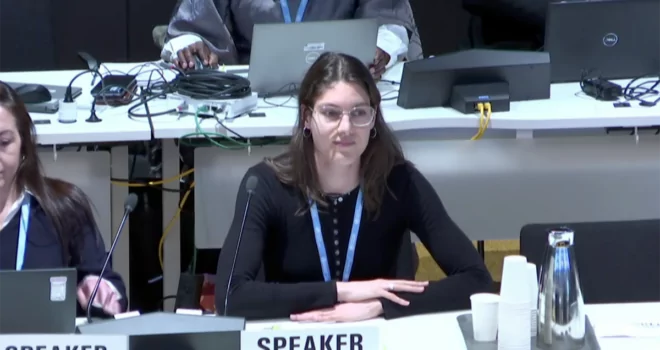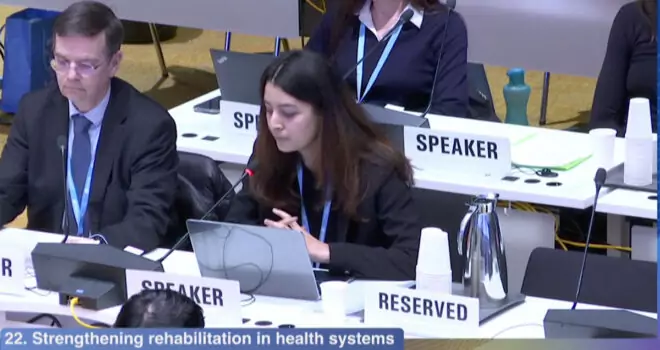This statement was delivered by Ms. Fernanda de Carvalho, our Advocacy Committee member for PAHO, at the Seventy-Seventh Session of the WHO Regional Committee for the Americas
PAHO GENDER EQUALITY POLICY: PROGRESS REPORT
AGENDA ITEM 7.8B
Honourable Chair,
Distinguished Delegates,
The World Heart Federation welcomes the Progress Report on PAHO’s Gender Equality Policy. We applaud WHO and Member States for their continued commitment to advancing equity in health.
Despite progress, significant inequities persist for women in health, including heart health. Cardiovascular disease remains the leading cause of death in women across the Americas and worldwide, responsible for approximately 35% of deaths each year. Yet, women continue to be underdiagnosed, undertreated, and underrepresented – as people living with cardiovascular disease, healthcare professionals, and public health leaders.
The underrepresentation in practice, research, and leadership contributes to treatment gaps, misaligned policies, and limited integration of gender-sensitive perspectives in care. Advancing women’s participation and leadership across health systems is essential to achieving both equity and quality of care.
WHF urges Member States to:
- Integrate gender equality into national health policies, strategies, and regulatory frameworks, supported by institutional mechanisms and dedicated structures;
- Promote equitable representation and leadership of women across the health sector – including public health, healthcare delivery, and research – through policies and capacity-building initiatives;
- Ensure that cardiovascular disease is explicitly addressed as part of gender and health equity initiatives, with women’s specific needs embedded in PAHO’s forthcoming Strategic Plan 2026-2031;
- Strengthen the evidence base on gender and health through systematic collection, analysis, and use of sex- and gender-disaggregated data to inform the design, implementation, monitoring, and evaluation of research, policies, and programmes to address women’s needs; and
- Support the recruitment, retention, and advancement of women in health and public health professions to ensure gender-sensitive care, improve professional parity, and raise quality of care.
WHF remains committed to supporting WHO and Member States to advance gender equity in health across the region. Addressing these inequities will be essential to achieving the Sustainable Development Goals.
Thank you.


